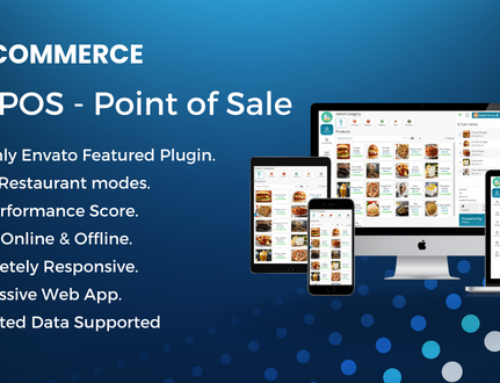Learning Management Systems (LMS) play a crucial role in modern education by providing a centralised platform for managing and delivering educational content. These systems streamline administrative tasks, facilitate communication between educators and learners, and offer interactive features that enhance the learning experience. LMS platforms enable educators to create, organise, and deliver course materials, track student progress, and assess performance, while students benefit from access to resources, collaborative tools, and personalised learning pathways. The versatility and efficiency of LMS platforms have revolutionised education, making them an essential component in facilitating effective teaching and learning in today’s digital age.
The architect with the most experience designing playing fields. When you utilize it, you can organise everything associated with your courses on one page for easy management. This encompasses everything from dividing up your classes into their respective sections to completing the chapters of your book. Discover new things within a setting that is easy to go around in and has a user interface that is uncomplicated.
How things work

- The students start by signing up and looking over the available classes. Place the class in your shopping cart, add it to your wish list, and then make the purchase.
- Keeping track of one’s learning when classes and their respective categories are listed is much simpler.
- Create a motif with more than one colour. Keeping track of a list of email recipients using all three colours
- Multi-Store
- You can print a comprehensive order summary for any given sale using.
- Students are able to take pleasure in their education thanks to the front-end course view.
- Module for the Course Certificate that can be used to make a certificate
- Full White Label Store Adjusting the Image That Was Uploaded View the reCaptcha on the Page to Login and Change Your Password
- Integration of cloud data storage providers such as Amazon Web providers (AWS), Wasabi, and Local
- Google Calendar for Zoom Meetings
- Course Completion Certificates Are Made
- Choices that can be personalised, such as whether right-to-left reading (RTL) is enabled or disabled, the primary colour, the sidebar, and the layout themes. You have the ability to adjust the Color Setting, as well as the Transparent Layout and the Dark Layout, within the Theme Customizer.
- The plan can be requested by the owner, and the administrator has the option to either accept it or reject it (Manually Payment Gateway).
- Both Slack and Zoom are compatible with one another.
- There are both free and commercial courses available that teach users how to connect Telegram Payment gateways for secure financial transactions using Bank Transfer, Stripe, PayPal, Paystack, Flutterwave, Razorpay, Paytm, Mercado Pago, Mollie, Skrill, Coingate, and Paymentwall.
- Custom Domain
- Available in different languages
- An RTL experience that is friendly to users, catering to those who speak languages such as Arabic, Hebrew, and Urdu
- Made using Laravel 9
Features

-
The change from the front end to the back end
For learning to be managed well, there must always be a strong back end. It doesn’t matter anymore if that learning takes place online. For a smooth front-end solution, it would still need a backend that works well. You can manage courses and course orders from the backend, and you can use an interactive front-end interface to complete course orders.
-
Dashboard
Since the store has two sides, the back end and the front end, it would have two screens for managing both sides. Here, you can see the total number of courses, orders, and sales, as well as a list of your top and most recent orders. You can also find a record of your orders from the last 15 days here.
Get data for your whole store, including traffic from different browsers, devices, and platforms and your top URLs. This dashboard will tell you everything you need to know about your visitors.
-
Integration of Cloud Data Storage Platforms Such as Local, Amazon Web Services, and Wasabi
Integration of cloud data storage, such as that provided by Local, AWS, and Wasabi, is essential for the protection of your data. The user is assisted in accomplishing the aforementioned goal by means of this feature of Cloud Data Storage.
It makes it possible to store data both internally and externally, as well as to archive it and back it up, recover from disasters, process data in the cloud, and tier storage according to a variety of criteria, including prices, availability, performance, recovery, and migration. Both Amazon Web Services and Wasabi are examples of authenticated third-party Cloud Data Storage providers. These providers protect users’ data from hacking attempts and keep costs low.
-
Integration with Slack
One of the easiest and most convenient ways to maintain tabs on the actions of the organisation is to sign up for quick notifications of those activities. You will be able to gain insight into the important actions that take place through the various channels and the times at which they take place with the assistance of Slack Integration. You can even schedule the messages to be delivered later with its assistance. The process of correcting errors does not constitute a burden either.
-
Integration of Zoom
We have plenty of experience with virtual meetings. The Zoom Integration gives a platform through which you are able to create a Zoom meeting by providing inputs of asked parameters such as Client, User(s), Meeting Time, and Duration. After doing so, it generates a link through which individuals are able to attend the meeting. You have the ability to easily establish meetings, view them, start them, and delete them.
In addition to this, the newly formed Zoom meeting will be synchronised with the calendar, which will display the meeting details, including who is joining the meeting and at what time, as well as which people are joining the meeting. This capability of syncing calendars makes it easier to arrange appointments at appropriate times.
-
Integration with Telegram
Instant messaging, which doesn’t require much effort and can be done quickly, is one of the best ways to keep up with the latest developments in projects and activities related to such initiatives. You will be able to receive notifications of any actions taken relating to anything that piques your interest, thanks to the integration of Telegram. Using this tool makes it easy to keep up with the jobs that are currently being performed.
-
Orders
You can obtain an overview of each order by clicking here. Find out everything there is to know about a specific order number by coming here. You can print the receipt and change the order status from this location.
-
Store Settings
Settling matters about the store, such as descriptions, headers, footers, and subscription preferences, can be done from this location. From this location, you can manage the social media settings that will appear in the footer area.
-
System Settings
This section lets you control your store’s website and email settings. In addition, make sure the system settings for the payment side of your store are secure. The following payment channels can be used to make purchases at this store: Bank Transfer, Stripe, PayPal, Paystack, Flutterwave, Razorpay, Paytm, Mercado Pago, Mollie, Skrill, and Coingate.
-
Course Certificate Module
Using the built-in features provided by this module, students can easily generate certificates attesting to the completion of the courses they enrolled in. This simplifies the process of generating certificates overall. You simply need to use four variables—namely, the store name, the student’s name, the course time, and the course name—in order to create the certificate. In addition, you have a choice between two different layouts for the certificate, as well as a number of different hues.
-
Retail Point of Sale
The back end would be responsible for applying all of the settings, and the front end would provide a depiction of those settings. To put that another way, the front-end view would be transformed into a learning website. The Courses are going to be included in this area according to their category.
Students and clients can add the necessary courses to their shopping basket after accessing all of the course information with the click of a tab. After that, the students/customers can move on to the checkout area. In addition, they are able to complete the order by beginning the payment process through a protected channel.
-
Changelog
You will be able to check what new versions and updates have been released here, as well as what new features we have included. Check the log for changes.
-
Support
If you have any problems, questions, or recommendations, please make your request for support here. Please refrain from asking for support in the comments section so that we can all save some time and respond more efficiently.
Conclusion:
LMS platforms provide a centralised hub for course materials, communication, and assessment, streamlining administrative tasks and fostering collaboration. They offer flexibility, scalability, and personalised learning experiences, catering to diverse educational needs. With their interactive features, LMS platforms have revolutionised education, empowering educators to create engaging content and empowering learners to navigate their educational journey with ease. As technology advances, the role of LMS in education will only continue to expand, enabling a more inclusive, accessible, and effective learning environment for all.








